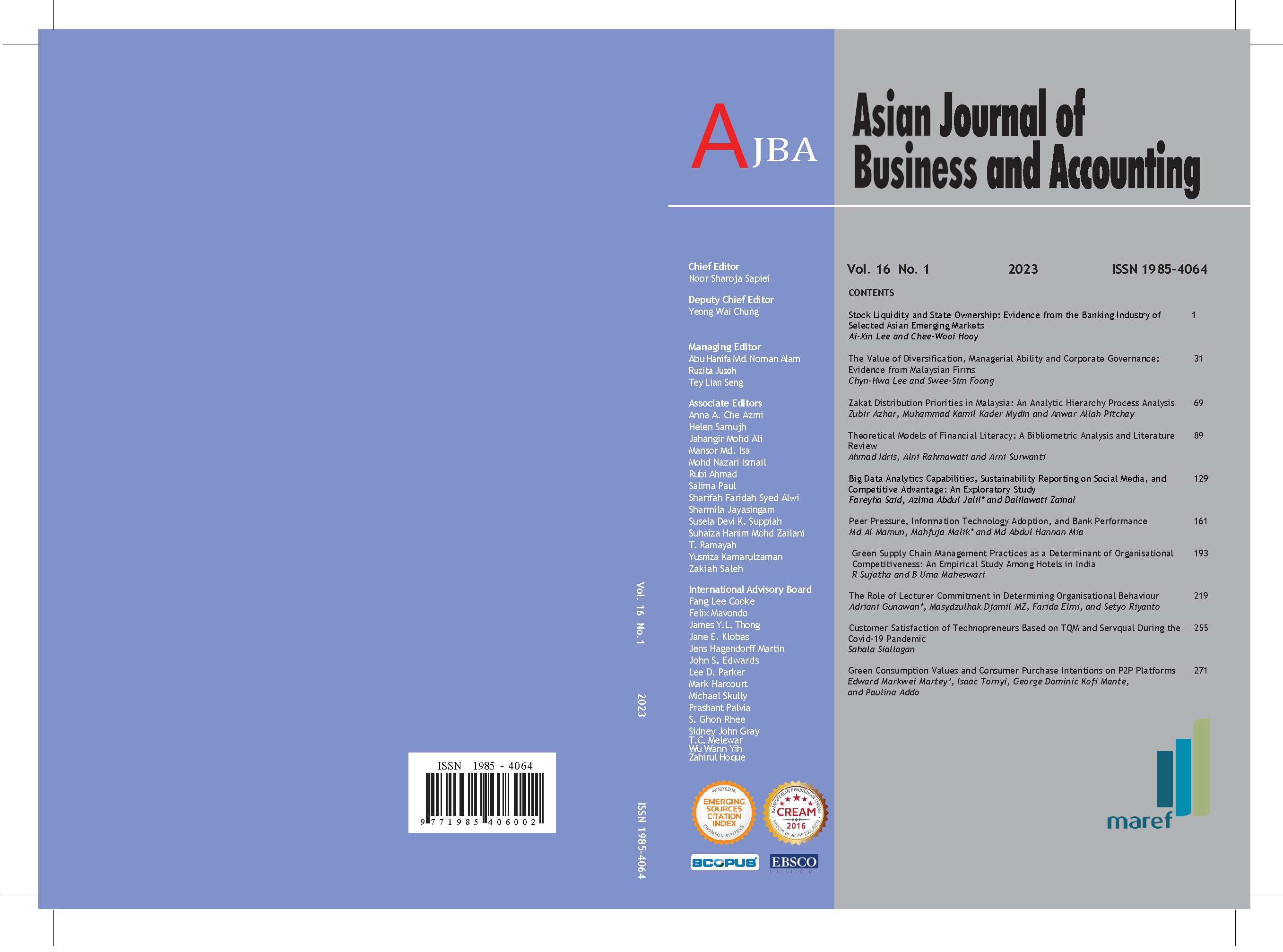The Value of Diversification, Managerial Ability and Corporate Governance: Evidence from Malaysian Firms
Main Article Content
Abstract
Manuscript type: Research paper
Research aims: This paper examines the moderating effect of managerial ability on the relationship between diversification and firm value.
Design/Methodology/Approach: The analysis is based on all KLSE-listed firms across nine sectors over the period of 2009 to 2017 using panel regression.
Research findings: High-ability managers increase Tobin’s q. Managerial ability changes the diversification-firm value relationship from negative to significantly positive. Managerial ability, in terms of governance mechanism, CEO age, and education background, has a positive moderating effect on the value outcome of diversification.
Theoretical contribution/Originality: This study is one of the first to link resource-based perspective and outcome of diversification, and find a moderating relationship between diversification and firm value. It contributes to resource-based theory, highlighting that accumulated human capital is a valuable strategic resource for a firm. The results also contribute to the corporate governance literature and provide support for upper echelons theory.
Practitioner/Policy implication: The findings are valuable to diversified firms in understanding the effect of managerial ability on the outcome of diversification. Diversified firms that hire older CEOs with better education, practise separate leadership structures, and have a mostly independent board are more likely to benefit from diversification.
Research limitation/Implications: This study uses only one proxy for managerial ability. Second, firms are grouped by industry to compare efficiency. However, firms in the same industry can have quite varied inputs and outputs depending on their asset and operation mix.
